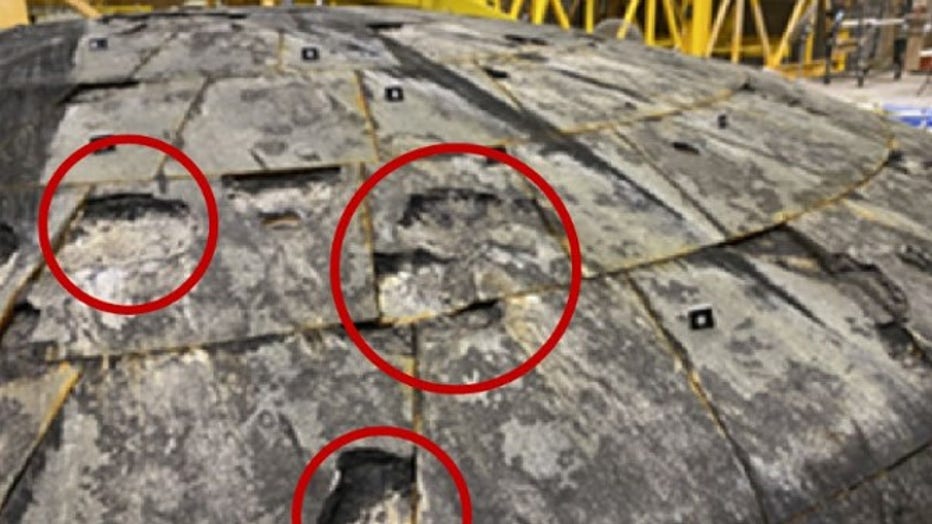NASA delays Artemis Moon landing to 2027 after Orion heat shield investigation

Update on Artemis II and III moon missions
NASA will land the next American astronauts and first international astronaut on the South Pole region of the Moon in 2027 they announced today, with a 2026 mission on schedule.
Human's return to the moon will wait another year, NASA leadership announced on Thursday, after an investigation into their lunar spacecraft found some issues following its first uncrewed trip around the Moon two years ago.
NASA Administrator Bill Nelson said the Orion spacecraft heat shield underwent extensive testing after the 2022 Artemis 1 flight around the Moon to understand the risks to astronauts.
NASA Deputy Administrator Pam Melroy said Orion's shield "wore away differently than expected" upon the skip re-entry, the maneuver used to slow the spacecraft down as it re-enters Earth's atmosphere at speeds 32 times the speed of sound and experiences 5,000 degrees Fahrenheit temperatures.
While the capsule was dipping in and out of Earth’s atmosphere, heat built up a layer of char on the outside of the vehicle, which began cracking in an uneven shedding of that outer layer. While the heat shield is expected to char, engineers were concerned because the charring material began coming off the vehicle.

Heat shield damage to the Orion capsule (NASA)
After more than 100 tests across the country to understand the issue, Nelson said the U.S. space agency is moving forward with Orion and its Space Launch System but with some changes, including pushing back the first astronaut flights by at least a year.
NASA is targeting 2026 for the Artemis II, the first launch of Orion around the Moon with an American-Canadian astronaut crew. Nelson said the first Moon landing with astronauts is targeted for mid-2027 if SpaceX's Starship is ready for the Artemis III mission.
The Artemis missions will also fly under modified trajectories and re-entry to lessen the heat coming back into Earth's atmosphere.
SpaceX was awarded the first human Moon lander contract to land astronauts on the Moon using its Starship spacecraft, currently undergoing test launches in Texas. The company recently completed its sixth successful test.
The space agency said that had astronauts been onboard the Orion spacecraft, they would have been "safe," and the temperature would have remained "comfortable."
The Space Launch System rocket for the Artemis II mission is currently being stacked at NASA’s Kennedy Space Center in Florida where it will be integrated with the Orion spacecraft.
LINK: Get updates on this story and more at foxweather.com.

